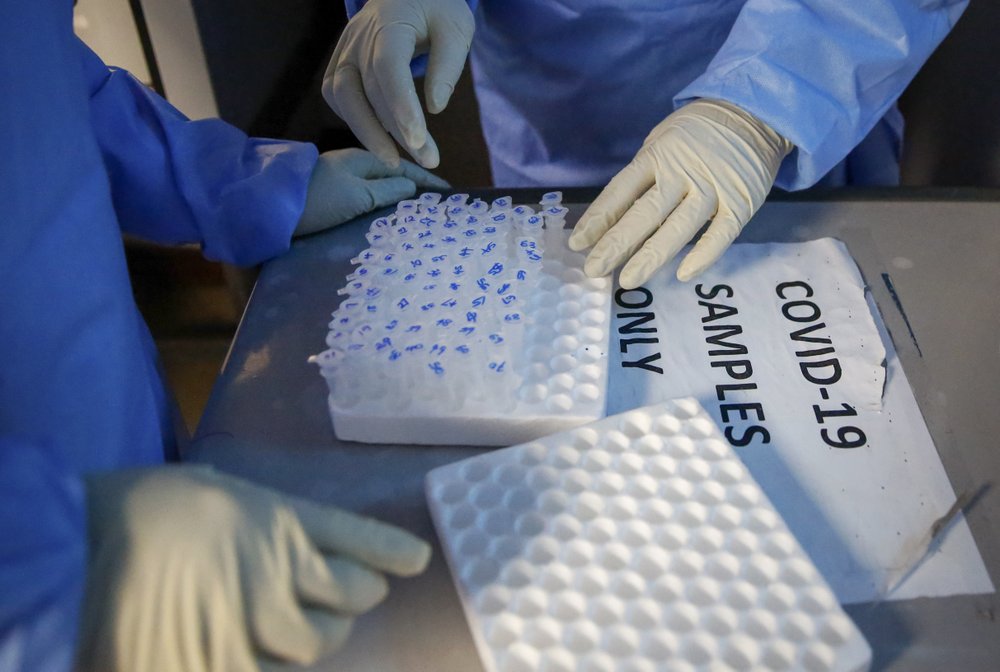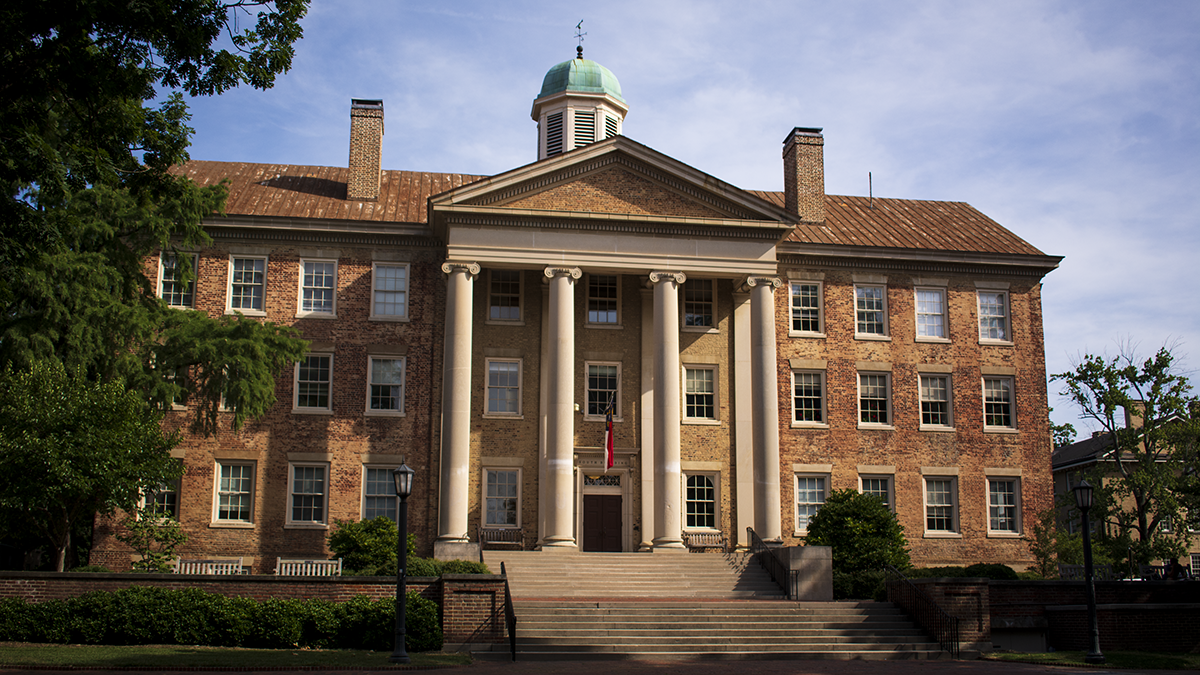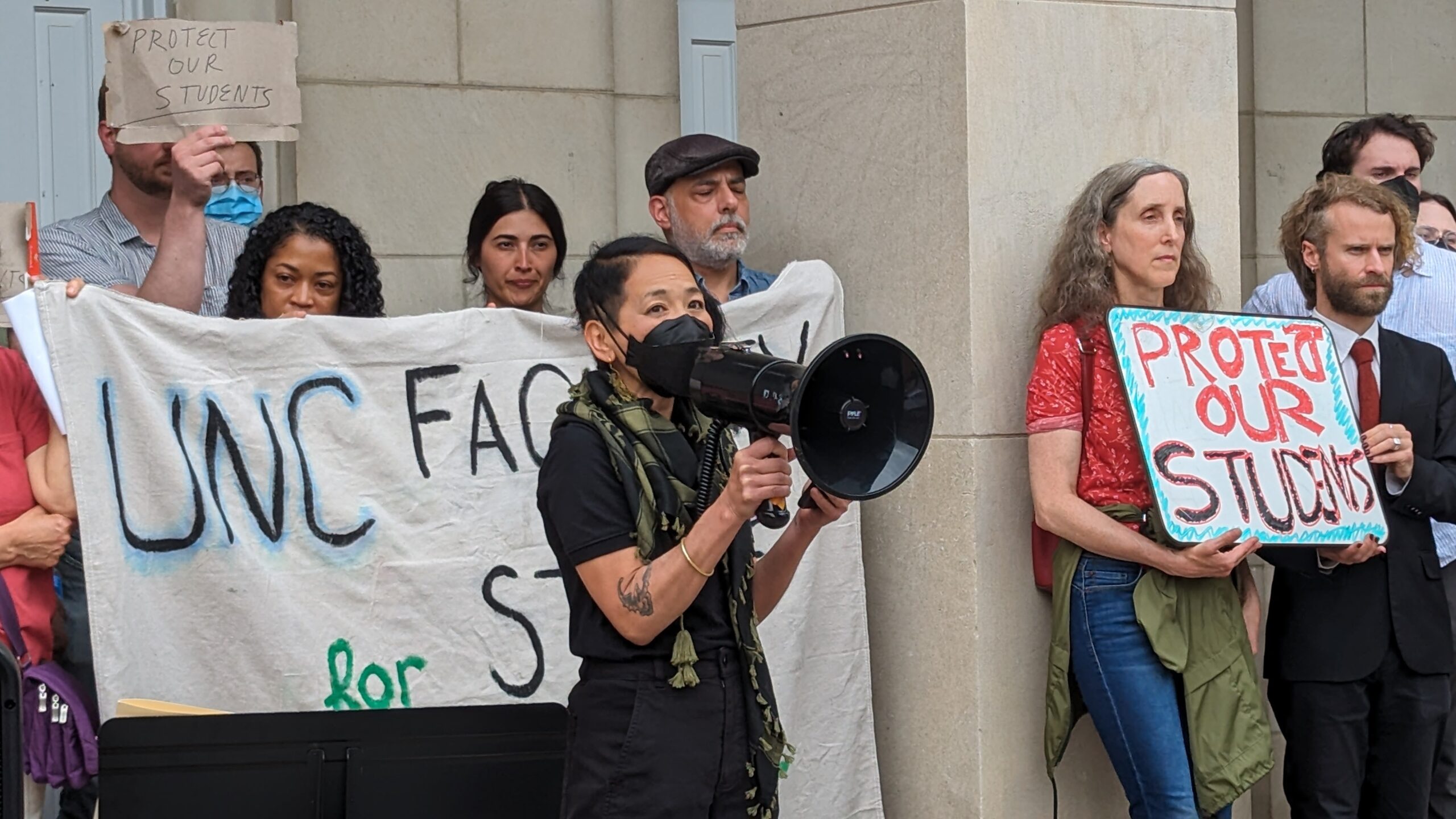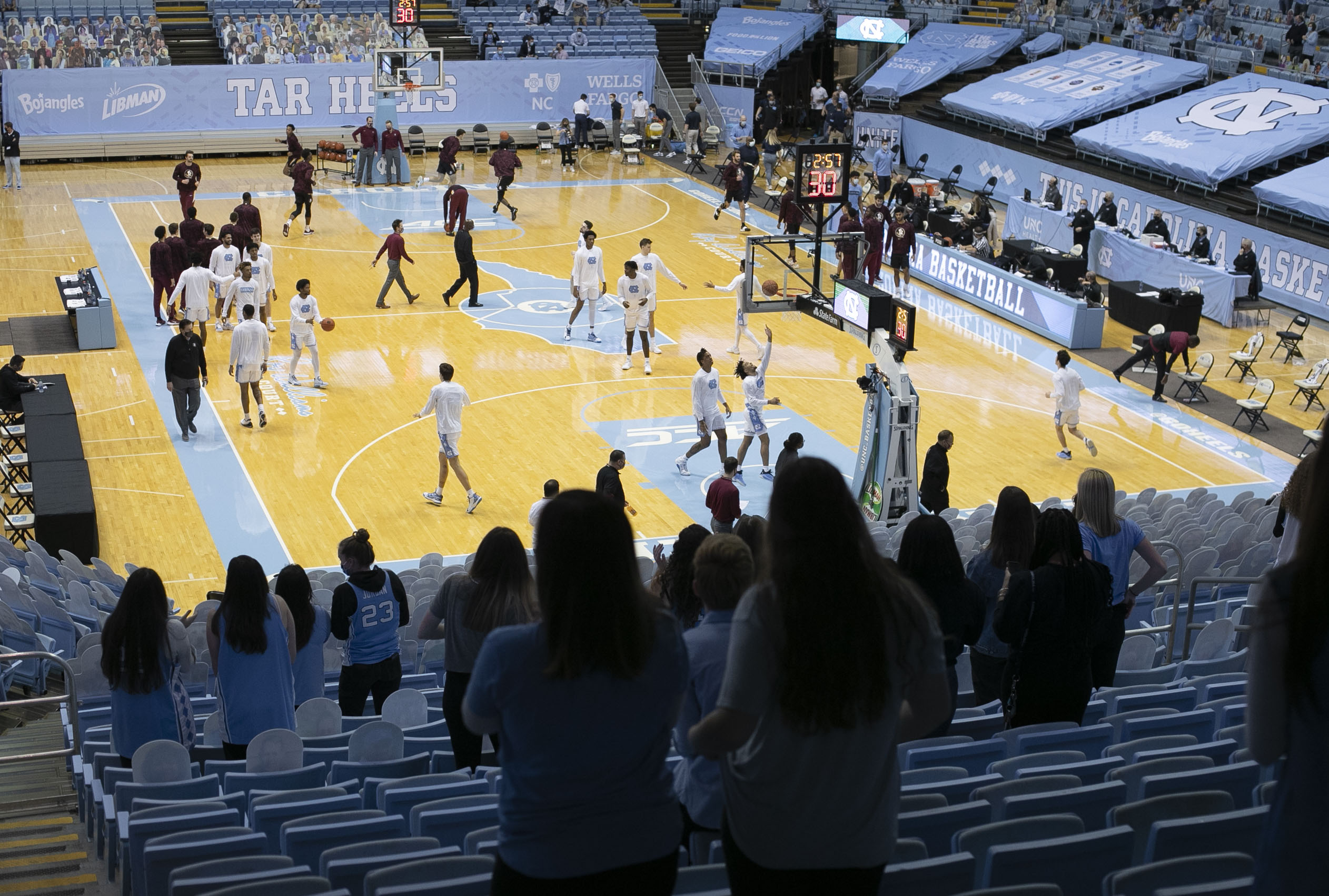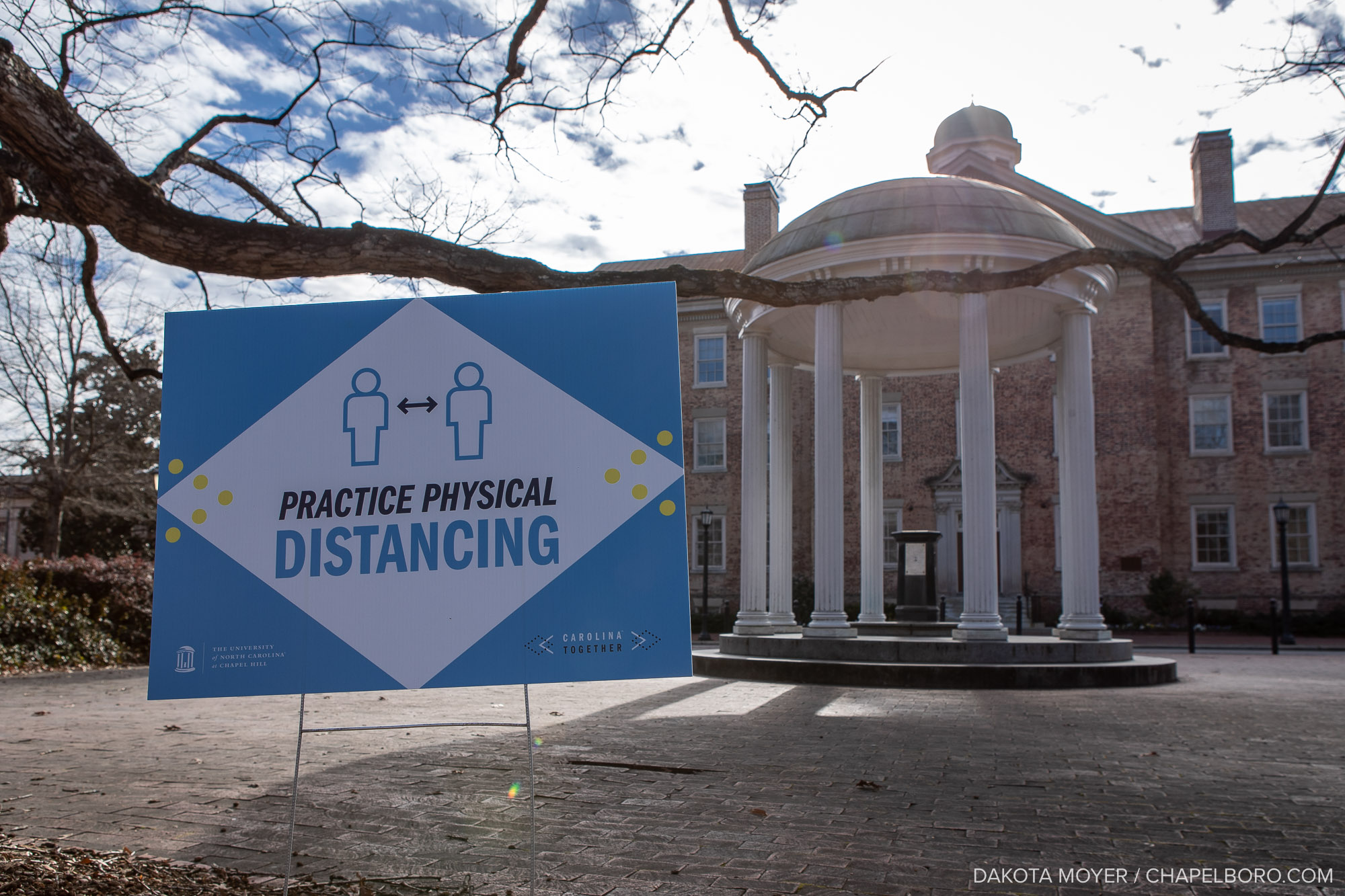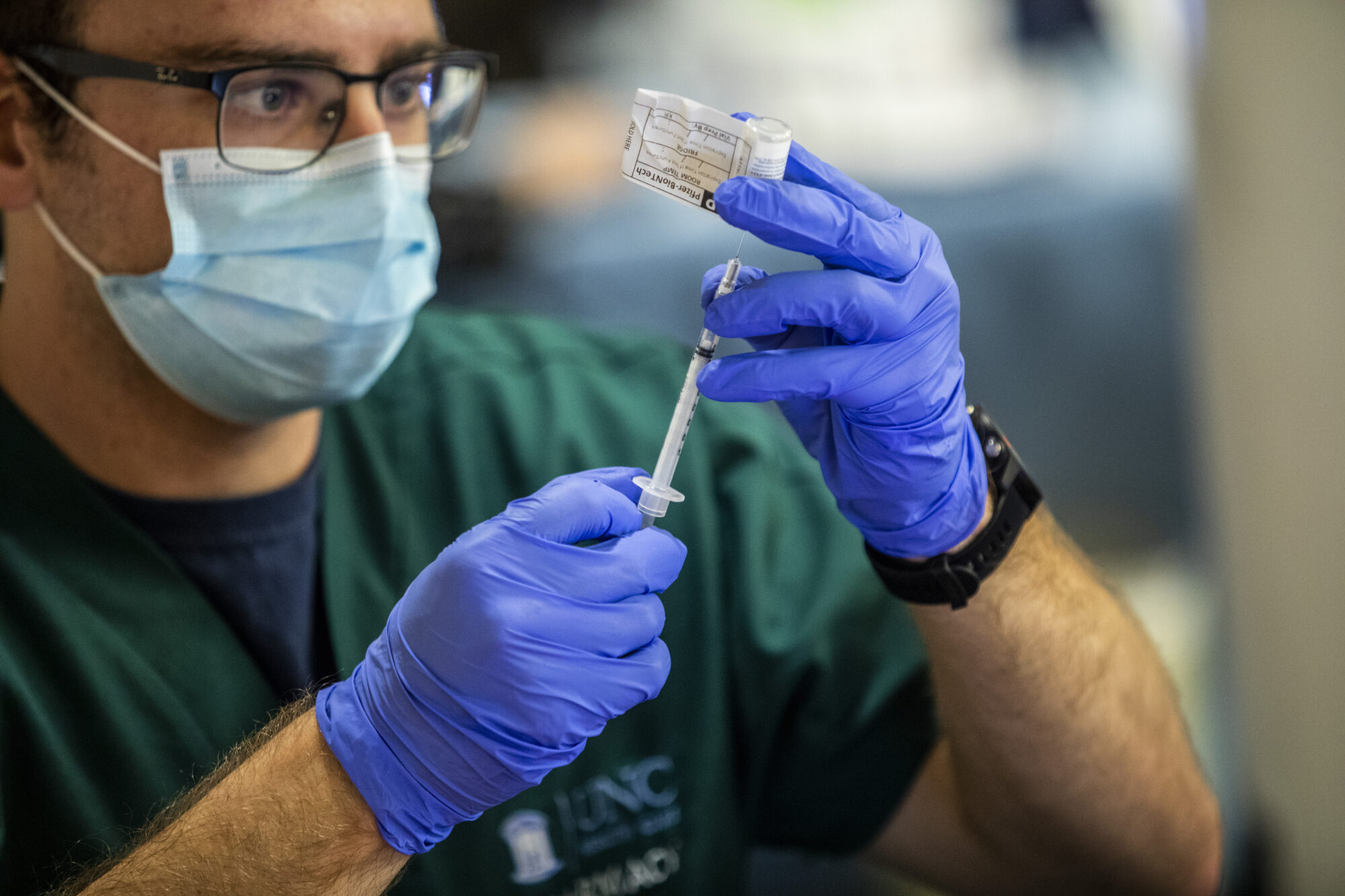
Scientists at the UNC Gillings School of Global Public Health have developed a new vaccine that could be effective against COVID-19 and its variants while also protecting against a future coronavirus pandemic.
According to a study published June 22, the vaccine designed at UNC protected mice from the current SARS-CoV-2 coronavirus as well as a group of coronaviruses known to make the jump from animals to humans.
One of the lead authors of the study is Dr. David Martinez, a postdoctoral researcher at the Gillings School of Global Public Health. He said after testing the effectiveness of current COVID-19 vaccines, UNC pivoted to look at a second-generation vaccine that targets sarbecoviruses – part of the larger family of coronaviruses.
“In the last two decades, we’ve had two viruses pop out from this so-called sarbecovirus subgenus,” Martinez said. “So that is the type of virus that [includes] both SARS-coronavirus-2, which causes COVID-19, as well as the original SARS from 2003. So, we really thought, ‘well, this is really a problem that has happened in the last two decades and we really need to be better prepared to be able to respond to these types of viruses.’”
To create a vaccine that targets sarbecoviruses, Martinez said UNC researchers welded together mRNA from multiple coronaviruses, including those from the emerging COVID-19 variants.
“We did test our vaccine against the so-called Beta variant, or the B.1.351 variant, which was first detected in South Africa, but of course has spread to several parts of the world,” Martinez said. “So, our vaccine did protect against that particular variant which has been troublesome as reported by other groups. Our vaccine also protected against the original SARS from 2003, as well as close cousins of SARS that circulate in bats.”
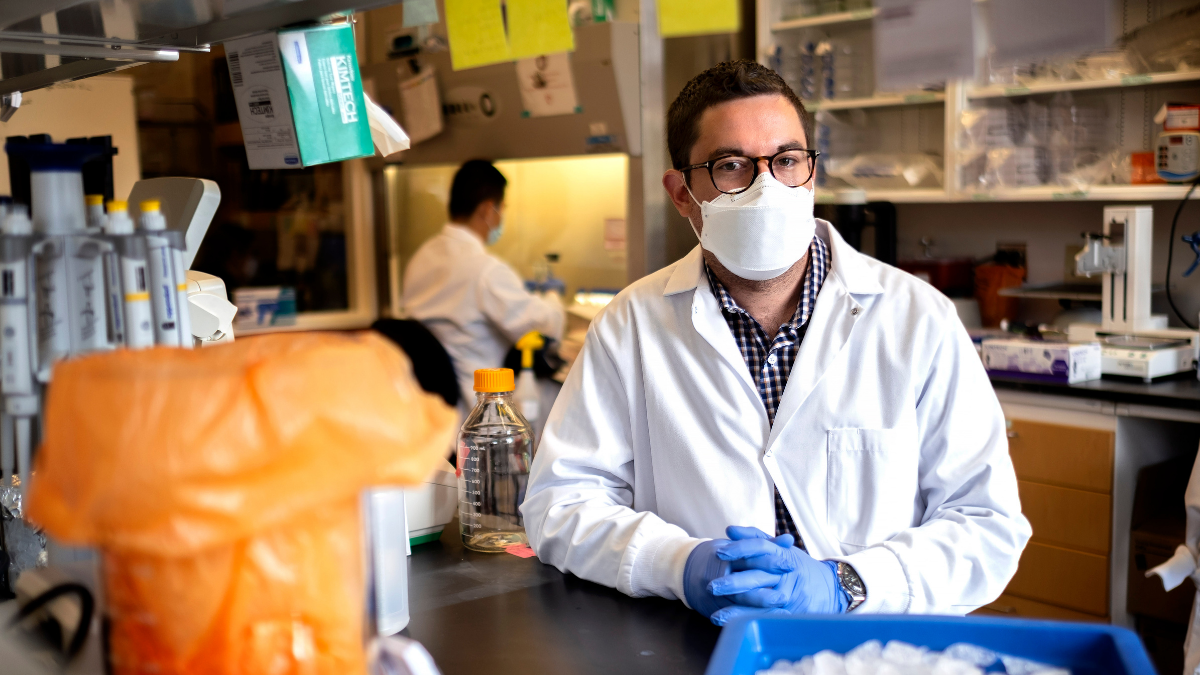
Dr. David Martinez in the lab on UNC’s campus. (Photo via UNC/Jon Gardiner)
Martinez said UNC researchers began developing the more universal coronavirus vaccine in June of 2020, with initial testing in animals beginning in November.
Study results show that the newly-developed, hybrid vaccine effectively generated neutralizing antibodies against multiple spike proteins — which viruses use to latch onto healthy cells – when tested on mice.
When given the new vaccine, mice infected with SARS-CoV-2 and related coronaviruses were spared from serious infection and lung damage.
Martinez said the vaccine will be tested on larger animals like primates, ahead of initial clinical trials in humans, as soon as is safely possible.
Looking to the future, Martinez said scientists around the world need to pull together to make pandemic preparedness, and developing a more universal coronavirus vaccine, a priority.
Thankfully, he said different labs alongside UNC, such as those at the University of Washington and Duke’s Human Vaccine Institute, have already answered that call.
“You really don’t know which one’s going to be the best approach and provide the best protection once a vaccine is actually rolled out into humans,” Martinez said. “At the beginning of the pandemic, no one could have predicted the vast success of any particular vaccine or the failure of any given vaccine. So, I think you really need to have multiple candidates move forward so that you can really have the best chance of a vaccine being successful.”
Lead photo via Travis Long/News & Observer.
Chapelboro.com does not charge subscription fees. You can support local journalism and our mission to serve the community. Contribute today – every single dollar matters.

